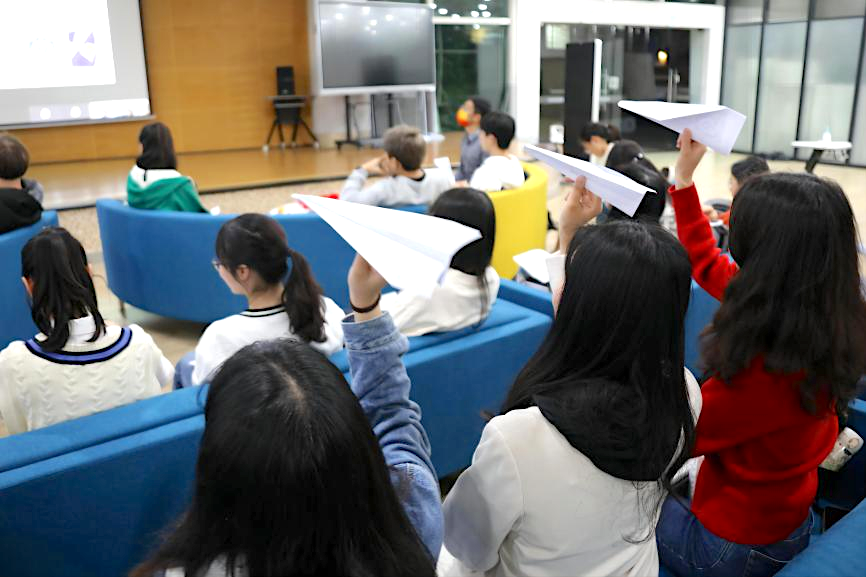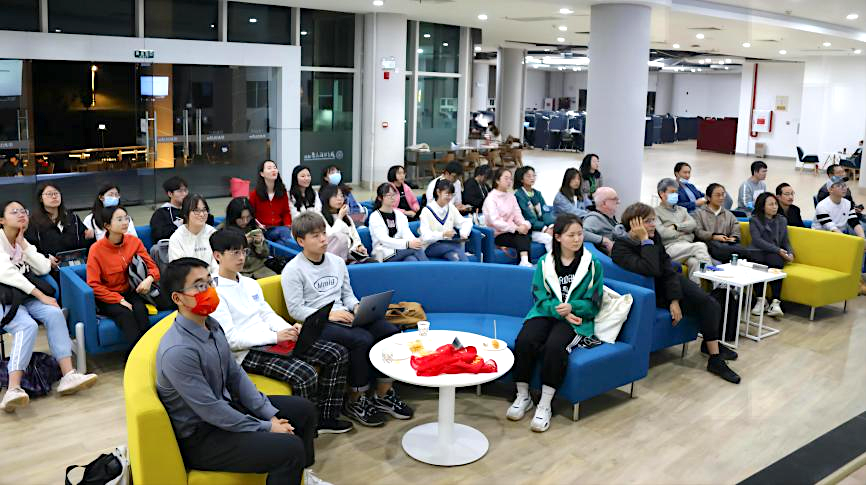On the evening of March 29th, the Future Education International Salon, hosted by the school, held its seventh session in Room A101 of the Lijing Building. John Gardner, former chairman of the British Educational Research Association (BERA), vice president of the University of Stirling in the UK, and professor of education, gave a wonderful lecture on "Future-oriented Education Evaluation - 2030...2040...2050?" The lecture explored the development direction of future education evaluation methods and analyzed the core role of artificial intelligence technology in complex education evaluation in the future. Dr. Jin Yubo hosted the salon, and Sun Bo, vice dean of the School of Future Education, relevant teaching and research personnel of the school, and more than 40 students participated in the event both offline and online.

Professor Gardner first analyzed the public's understanding of education evaluation, the contradiction between the reliability and effectiveness of education evaluation, the principles and purposes of traditional education evaluation, and the overall design ideas of standardized tests. He vividly demonstrated with the "golf hole" game that the traditional one-size-fits-all assessment model is not suitable for all students, ignoring critical abilities such as communication, teamwork, creativity, and problem-solving that are essential for career development.
During the lecture, Professor Gardner designed the "paper airplane" game to help the audience understand the multidimensional attributes that education evaluation should have. The game was set up in pairs, with each person designing and making a paper airplane and then throwing it towards the stage. The team members then scored each other. By evaluating the paper airplanes from different dimensions, it triggered teachers and students to think about whether it is necessary to change the traditional one-size-fits-all evaluation method and conduct more comprehensive evaluations of students. Even if the scores are the same, how to quantify and analyze the different dimensional scores behind them?

At the end of the speech, Professor Gardner expressed his expectations for future education evaluation. He stated that future education evaluation must accurately judge students' positive factors and achievements, rather than just assessing whether they meet certain requirements. Future evaluations should be tailored to each student, and should be able to determine whether students have talents in subjects such as math, science, art, and music. The method to achieve this goal is to use the increasingly developed artificial intelligence technology to record the entire learning process of students and reliably and effectively identify the strengths and weaknesses of each student through the analysis of the learning environment.
During the Q&A session, there was an in-depth exchange between teachers and students. Huang Sisi, a master student in subject teaching, was concerned about the impact of the wealth gap on education fairness and raised the question of "how to ensure fairness for impoverished students in national exams." Professor Gardner said that this is indeed an issue of education fairness that should be concerned, and in fact, all exams face the same dilemma of how to design exams for all students. Huang Jingyuan, a student from the Leyu Academy, said that it is difficult to quantify core competencies such as digital literacy, critical thinking, and innovative thinking, and he was curious about how to use AI technology to comprehensively evaluate them. Professor Gardner said that first, we need to scientifically define the evaluation indicators for competencies such as innovative thinking, and then optimize the AI algorithm through a large amount of data, gradually improving the evaluation results.

Teachers and students generally expressed that they gained insights into future education evaluation and will consider more comprehensive evaluations of students' abilities in their future work and study. The salon activity ended successfully in a lively discussion.



 Last Page
Last Page

 Phone:0756-3621121
Phone:0756-3621121
 Email:ccie@bnu.edu.cn
Email:ccie@bnu.edu.cn